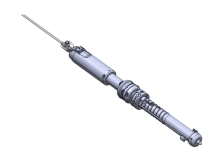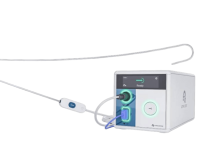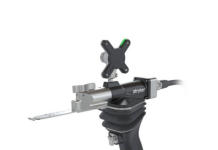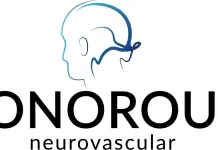Median Technologies announced that eyonis™ LCS, its wholly owned proprietary AI/ML-based CADe/CADx Software as a Medical Device (SaMD) for lung cancer screening, met the primary endpoint in RELIVE. Top-line data from RELIVE shows that eyonis™ LCS together with radiologist achieved statistically significant improvement over radiologist alone (p=0.027). RELIVE is the second of two pivotal studies required for marketing authorization in U.S. and Europe.
By meeting primary endpoint in RELIVE, eyonis™ LCS has successfully completed its clinical validation and confirmed the analytical validation previously achieved in REALITY, a standalone pivotal study which results were announced in August 2024. Successful pivotal studies are a key prerequisite of regulatory submissions both in the US and in EU. Consequently, eyonis™ LCS regulatory filings are now being prepared for U.S. FDA 510(k) filing and EU CE marking and will be submitted in Q2 2025.
Related: Aethlon Medical treats first subject with Hemopurifier device in Australia
Median’s eyonis™ LCS AI/ML-based CADe/CADx SaMD is designed to improve diagnostic accuracy of radiologists in analyzing low dose computed tomography (LDCT) scans for lung cancer screening.
Lung cancer is the number one killer of all cancers. A recent study showed that only 16% of lung cancers are diagnosed at an early stage and, because most were detected too late, the average five-year survival rate for all lung cancer patients is 18.6%1. Conversely, Stage 1 lung cancer can be cured, with an 80% survival rate after 20 years. For Stage 1A cancers that measure 10 mm or less, the 20-year survival rate has been shown to reach 92%.
“This is truly the most important milestone that Median eyonis™ has achieved yet; with RELIVE successfully meeting primary endpoint, we confirm the game-changing potential of our AI/ML-based Software as a Medical Device for lung cancer screening. We are confident that eyonis™ LCS will contribute to accelerate efforts in the U.S. and Europe by making lung cancer screening more accurate and efficient, especially for early-stage lung cancers” said Fredrik Brag, CEO and Founder of Median Technologies. “Broad implementation of LDCT screening procedures with eyonis™ LCS has the potential to dramatically improve lung cancer diagnosis accuracy, address the bottlenecks of complexity and time required for analyzing LDCT images, and, most importantly, save lives and reduce the need for healthcare spending on late-stage lung cancer treatment.
“We believe timely screening of the high-risk populations using eyonis™ LCS can enable doctors to save more lives while further reducing medical costs,” Brag continued. “Furthermore, using eyonis™ LCS can not only save lives but also prevent healthy patients from undergoing unnecessary medical procedures. This will avoid unnecessary distress for patients and afford payers tremendous cost savings on unnecessary procedures in addition to obviating the even greater costs of palliative care required for late- stage lung cancer management.”.
The primary objective of RELIVE, a multi-reader multi-case (MRMC) trial conducted on a cohort of 480 patients at high-risk of developing lung cancer, was to demonstrate, through a superiority test run by a set of 16 radiologists, that eyonis™ LCS can improve clinicians’ diagnostic accuracy in analyzing LDCT lung cancer screening scans, by helping in the detection localization and characterization of lung nodules, by reducing false positives and by driving clinical management to avoid unnecessary follow-up procedures. Top-line data from RELIVE shows that eyonis™ LCS achieved statistically significant improvement over radiologist alone (p=0.027). This finding demonstrates that eyonis™ LCS may save lives of patients, time for healthcare professionals as well as reduce cancer costs for payers.
Additional RELIVE data, including multiple secondary endpoints, are being analyzed and will be reported in the coming weeks. RELIVE data will be shared in future Median Technologies communications and at upcoming medical and scientific conferences. More information regarding RELIVE study can already be found on ClinicalTrials.gov, study ID NCT06751576.
The first pivotal study, REALITY, initially communicated in August 2024, collected retrospective imaging and clinical data from 1,147 patients. REALITY evaluated eyonis™ LCS’ ability to diagnose and characterize cancerous vs non-cancerous patients (i.e. “performance at patient level”), and detect and characterize suspicious versus malignant nodules using LDCT lung screening scans.
Both RELIVE and REALITY studies were performed using retrospectively collected imaging and clinical data from patients from five major cancer centers and hospitals in the US and in EU, along with two US data providers.




